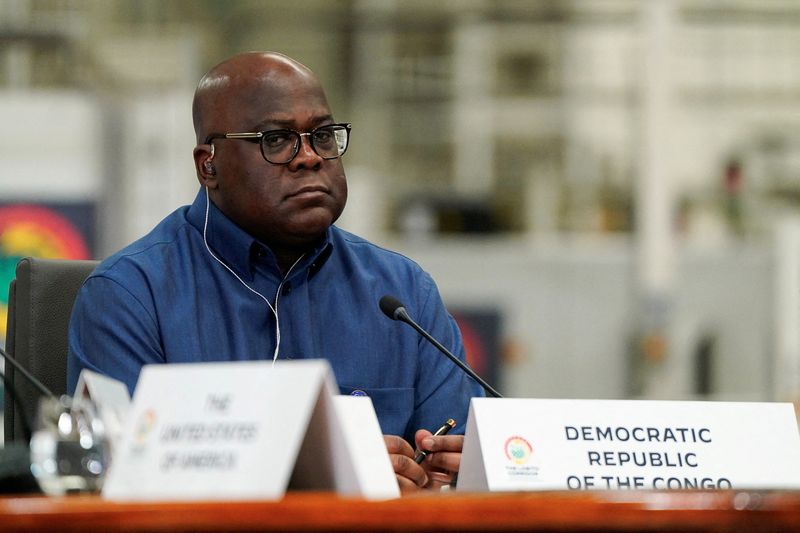Congo and Rwanda Presidents Meet in Qatar to Tackle Escalating East Congo Conflict
Doha, Qatar – March 18, 2025
In a significant diplomatic breakthrough, the presidents of the Democratic Republic of Congo (DRC) and Rwanda convened in Doha, Qatar, today to address the intensifying conflict in eastern Congo. The meeting between DRC President Félix Tshisekedi and Rwandan President Paul Kagame, hosted by Qatar’s Emir Sheikh Tamim bin Hamad Al Thani, marked their first face-to-face discussion since the M23 rebel group, widely believed to be supported by Rwanda, escalated its offensive in January 2025.
The conflict in eastern Congo has reached a critical juncture, with M23 rebels capturing strategic cities such as Goma and Bukavu, displacing thousands and deepening a humanitarian crisis that has persisted for decades. The DRC accuses Rwanda of fueling the insurgency, a charge Kigali denies despite evidence cited by UN reports and regional observers. The talks in Qatar come after a failed ceasefire negotiation attempt in Angola earlier this month, underscoring the need for a fresh approach to de-escalate tensions.
During the closed-door summit, the leaders focused on restoring stability in the volatile region. A joint statement released by the governments of DRC, Rwanda, and Qatar emphasized their “shared commitment to an immediate and unconditional ceasefire.” The trio also pledged to continue dialogue to lay the groundwork for a sustainable peace, building on previous mediation efforts like the Luanda and Nairobi processes, which have struggled to halt the violence.
Qatar’s role as a neutral mediator has been pivotal, with Emir Sheikh Tamim leveraging his country’s growing reputation as a diplomatic hub to facilitate the discussions. Analysts see this as a potential turning point, given the stalled progress in other regional initiatives. “This meeting signals a willingness to move beyond rhetoric and explore concrete solutions,” said Marie Nzomo, a Central Africa expert at the Institute for Security Studies. “But the real test will be implementation.”
The eastern Congo conflict has long been a flashpoint in the Great Lakes region, driven by a complex mix of ethnic rivalries, resource disputes, and foreign interference. The M23’s recent gains have heightened fears of a broader war, with DRC forces struggling to regain control and millions of civilians caught in the crossfire. International pressure has mounted on both nations to find a resolution, with the UN and African Union urging an end to hostilities.
While the Doha talks have sparked cautious optimism, challenges remain. Previous agreements have faltered due to mistrust and lack of enforcement mechanisms. Observers note that Rwanda’s alleged support for M23 and DRC’s reliance on local militias complicate the path to peace. “A ceasefire is just the first step,” Nzomo added. “Disarmament, accountability, and economic cooperation will need to follow.”
As the leaders departed Doha, no specific timeline for further talks was announced, though the joint statement hinted at ongoing Qatari mediation. For the people of eastern Congo, weary of war and displacement, the outcome of this diplomatic gambit could determine whether 2025 brings relief—or more ruin.
